- Учителю
- Методическая разработка по теме 'Путешествие и туризм' (9 класс)
Методическая разработка по теме 'Путешествие и туризм' (9 класс)








 I.Начало урока. Организация класса, речевая подготовка.
I.Начало урока. Организация класса, речевая подготовка.
Учитель:
Good morning, dear children I'm glad to see you. Sit down please. I think you are fine today, so look at each other smile and wish a nice day.
Welcome to the world of travelling and tourism. Today we are going to travel to the most interesting places of our world. I'm sure everyone likes travelling.
(Речевая подготовка проводится в режиме Т> P1, P2, P3 и т. д)
а) Речевая подготовка
Учитель:
My family is fond of travelling. There are many different reasons for travelling.
Try to name some of them. What is travelling for you? Is travelling hobby or the way of life?
( Учитель выборочно спрашивает учащихся.)
Учащиеся отвечают на поставленные вопросы, выходят к доске и заполняют « Word Web» Приложение 1.)
Ученик 1:
For me travelling is a way of learning the world. It gives me a chance to see new places and meet new people. I think it's а hobby for many people.
Ученик 2:
I like travelling not only in our country but also abroad, it's wonderful opportunity to see other countries and continents, modern cities. For me travelling is the way of life.
Ученик 3:
When you travel to different countries , you go sightseeing and take part in a celebration/ special occasion. As for me, I think hobby is a kind of hobby.
Учитель:
Thank you very much for your excellent answers. Do you agree with me that travelling and tourism are very popular nowadays?
Ученик 4 :
Tourism is extremely popular nowadays, people travel in order to find more about culture of the country they visit and compare the real life of the people, learn about the history of different countries.
Ученик 5:
It's very useful to visit different countries to get familiar with different cultures, to enjoy picturesque places, try new food.
b) Отработка в употреблении предлога by с видами транспорта.
Учитель:
Tell me please, what means of transport do people use going on holiday? What's your favorite form of transport? What is your dream holiday like?
( Учащиеся отвечают на поставленные вопросы.
Использование ПК учителем.
Документ Microsoft Power Point (Приложение 2)
Ученик 1:
There are many ways of travelling. If you want to walk, to see the beautiful countryside, to meet people, you may have long walks, such walks are called hikes.You don't think about tickets, don't hurry and walk a lot.
Ученик 2:
You may travel by car, it's interesting too, because you can see many things in a short time. You don't get tickets too.
Ученик 3:
It's comfortable to travel by train and by plane. When you travel by plane you don't spend a lot of time going from one place to another.
Ученик 4 :
I think travelling is very useful thing and you will enjoy all kinds of travelling very much.
(Учитель выборочно спрашивает учащихся) (5мин.)
II Введение новой лексики (отработка лексики по теме «Путешествие и туризм»)
Учитель :
A) Would you like to spend your holidays in these places?
Have you ever been on any holidays like these?
Which holiday would you choose and why?
( Учащиеся по очереди отвечают на поставленные вопросы используя фотографии с экрана.
Использование ПК учителем. Документ Microsoft Power Point Приложение 3) (3мин)
B) Употребление предлогов с существительными.
Учитель:
Сhildren , tell me please where can you relax and spend a good time? Pupils, match nouns with prepositions.
(Учащиеся заполняют карточки, правильно подставляя предлоги к существительным.
Учитель выборочно спрашивает учащихся, предлоги отрабатываются хором.)
the country (in)
In the seaside (at)
At a river (on)
On the sea (at)
By the mountains (in)
a lake (on; by)
C) Отработка лексики по теме .
Учитель : Diving, climbing, cycling, canoeing,
What can you do in these places? Hang-gliding, skiing.
(На доске карточки со словами, слова отрабатываются хором.
Используя данные слова учащиеся добавляют свои примеры)
Ученик 1: In the country : cycling, horse riding, harvesting;
Ученик 2: In the mountains: climbing , hang-gliding, skiing, hiking;
Ученик 3: At the seaside/ by the sea: diving, swimming, sunbathing;
Ученик 4: At the sea: diving, sailing;
Ученик 5:On a river: canoeing, rowing, water rafting;
Ученик 6: On a lake: fishing, water skiing;
Ученик 7: By a lake: camping, making bonfires.
(Учащиеся по очереди отвечают на поставленный вопрос , используя опорный материал с доски и экрана.) (4мин.)
D) Чтение текста с целью извлечения информации.
Учитель: You are going to read descriptions of tourist attractions.
Which photograph matches with descriptions.
There is an extra photograph you don't need to use.
Where are they?
(Учащимся раздаются отрывки с описанием дотопримечательностей. На экране появляются места о которых идёт речь. Учащиеся соотносят описание текстов с фотографиями. Использование ПК учителем. Документ Microsoft Word Приложение 4) (4мин.)
F) Динамическая пауза (Приложение 5) Stretching exercises.
(Учащиеся слушают аудиозапись и по команде диктора выполняют инструкции). (2мин.)
G) Прослушивание аудиокассеты по теме «Путешествие и туризм» (Приложение 6)
Учитель:
1. Have you ever stayed in a hotel? What was it like?
What problems might you have staying in a hotel?
(Учащиеся отвечают на поставленные вопросы)
Учитель:
There are lots of problems you could have while travelling on holiday, for example you might find that your hotel isn't good as you expected.
2. Задание для учащихся.
Учитель:
You are going to listen to three members of a family talking about their holiday. Which five of the problems do they mention?
(Учащиеся говорят о проблемах с которыми столкнулась семья во время отдыха. Учащиеся по очереди отвечают на поставленные вопросы.)
Ученик 1: Рroblems with food. Ученик 4: Problems with the water.
Ученик 2: Problems with hotel. Ученик 5: Problems with the journey.
Ученик 3: Problems with the pollution. (5мин.)
.
3.Просмотр фрагмента видеофильма «Trip to London» на английском языке.
Учитель:
London is the beautiful city. It has a lot of sights .Let's watch a part of the video film «London» Which sights of London does the film suggest you to see? What do you know about them? Have you ever been there? Do you want to visit them?
(После просмотра видео фильма учащиеся называют достопримечательности города, о которых рассказывается в видеофильме. Учащиеся отвечают на поставленные вопросы, Работа проводится в режиме Т>P1, P2, P3, P4 и т.д.)
Ученики :
This video film suggests seeing…, recommends, advises us to see… . (3мин)
Учитель:
Imagine you've just won a holiday for two to London.
Who would you take with you, what would you do in London?
How would you like to go there?
(Диалогическая речь по теме «Путешествие и туризм» Работа в парах. Работа проводится в режиме Р1>P2, P3>P4, P5>P6 и т.д.) (3мин.)
III Знакомство с местами отдыха.
(Использование ПК учителем. Документ Microsoft Word )
а) Учитель:
Children look at the screen please. Let's read and translate the following words.
( Слова появляются на экране .Учащиеся хором за учителем повторяют и переводят слова)
Сampsites Youth hostels
Self-catering Holiday camps
Hotels Guesthouses
Bed & Breakfast
Учитель:
What do you know about these places?
How are these places different from each other?
(Учащиеся отвечают на поставленные вопросы используя опорный материал с доски и экрана.)
Ученик 1:
I think that in the campsitеs you can camp in your own tent. There they provide toilets, showers and cooking facilities.
Ученик 2:
In my opinion you can rent self-catering and you have cottages or flats to cook and clean yourself.
Ученик 3:
Hotels provide you with a room to sleep in, usually with a private bathroom, a restaurant where you can eat all the meals and there are some other facilities (bar, swimming pool, sauna).
Ученик 4:
I think that bed & breakfast is a family house which offers rooms for rent with breakfast provided.
Ученик 5:
As far as I know youth hotels are for cheep accommodation in large rooms, you have to have your own sleeping bag, cooking facilities are provided.
Ученик 6:
Holiday camps organized stays for young people , usually in tents or huts, away from civilizations.
Ученик 7:
I know that guesthouses are small family hotels with a more informal atmosphere.
(Учитель выборочно спрашивает учащихся.)
b) Повторение сложных существительных по теме «Путешествие и туризм»
( Задание для учащихся.)
Учитель :
Children look at the screen please, read these words, match the nouns in list A with the nouns in the list B to make compound nouns. Then match the compound nouns with the definitions below.
(На экране появляются слова, учащимся нужно соотнести слова так, чтобы получились сложные существительные,а затем употребить их по смыслу в предложениях, используя опорный материал с экрана и доски)
A 1. hotel B a holiday 1.d (holiday room)
2. tourist b concert 2.e (tourist attraction)
3. night c friend 3.f (night life)
4. package d room 4.a (package holiday)
5. rock e attraction 5.b (rock concert)
6. pen f life 6.c (pen friend)
1. a person you write friendly letters, but have never met…. (pen friend)
2. a place which visitors to a city like to see …. (tourist attraction)
3. entertainment in places where you can dance, drink, and listen to music (night club)
4. an event where you can hear a band playing …. (rock concert)
5. a trip where the price includes accommodation, flights, transfers, etc. (package holiday)
6. the place where you sleep on holiday … (holiday room)
(Учитель выборочно спрашивает учащихся) (4мин.)
IV Заключительный этап урока.
Учитель:
Now children to make the conclusion of our lesson about travelling and tourism, tell me please, do you agree with the statement on the blackboard that:
«Travel broadens the mind»
(В заключении урока учащимся предлагается обсуждение утверждения о том, что «Делает ли путешествие людей более толерантными к культуре и вере других людей?)
Учитель:
Discuss in groups of three «If travel makes people more tolerant of other customs and beliefs or not?»
(Класс делится на 4группы, две группы приводят аргументы «за», и две группы аргументы «против»)
For : Ученик 1: Travelers are put into direct contact with other nationalities and they have to be tolerant to survive.
Ученик 2: People see some things which are better in the foreign country than their own and this may make them more receptive to new ideas.
Against: Ученик 1: Often modern tourists go on package tours, which keep them insulated from local people.
Ученик 2: Tourists often behave very badly on holiday which makes it impossible for them to get on with locals.
Ученик 3: Some resorts cater exclusively for foreigners and give them exactly the same sort of food and еntertainment as they would get home, so there is no possibility of broadening their minds.
Учитель: Thank you very much, for your excellent arguments. (4мин.)
V Рефлексия, выставление оценок, задание на дом.
Учитель:
Children, today during our lesson you've visited many interesting places, learnt a lot of new words, You've done many exercises . What do you like? What new information about travelling have you learnt? Why do people go travelling not only in their own countries but also abroad?
(Учащиеся отвечают на поставленные вопросы)
Учитель:
Children, you worked excellent and all of you get good marks.
( За работу на уроке учащиеся получают оценку «5 и «4»)
Учитель:
Your home task is to learn the new words on the topic «Travelling and tourim» (3мин)
The lesson is over good bye.
Приложение 1.
( Учащиеся выходят к доске и заполняют « Word Web »
to practice language
to meet people
to take part in celebration/ special occasion
celebration/ special occasion
to see beautiful countryside
to taste new food
to learn about the history of different countriesWhy do people travel?
to go sightseeing
to buy presents, souvenirs
to visit new places
Приложение 2. (Виды транспорта)
(Means of transport)
People can travel:
by plane by ship by train
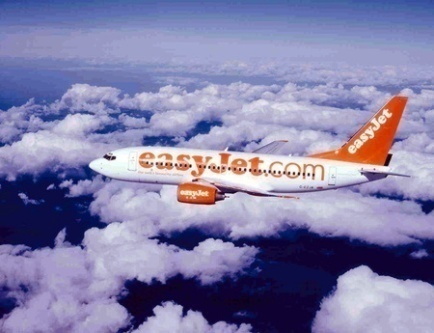
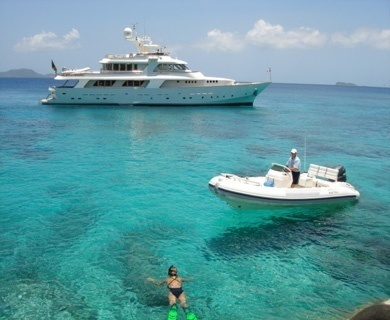
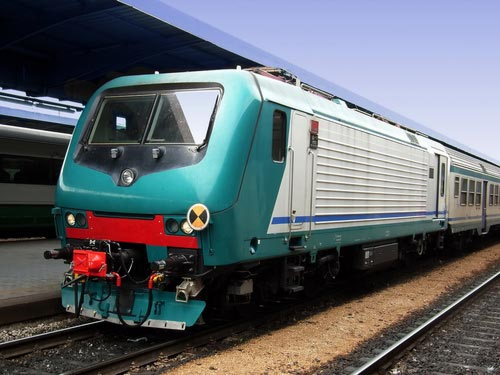
by bus by car by cycle
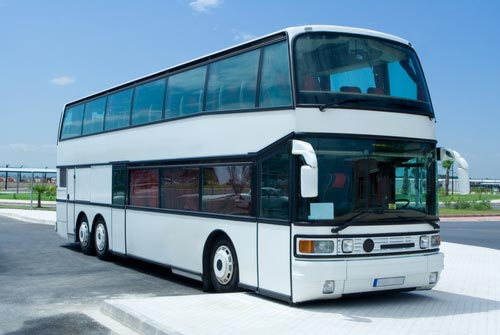
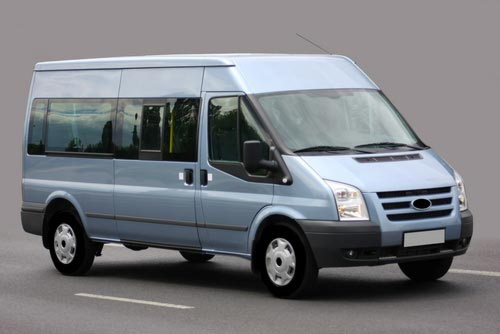
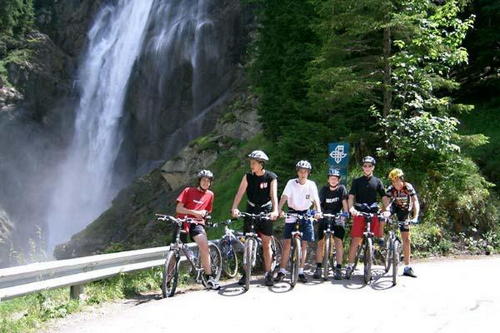
to hitchhike
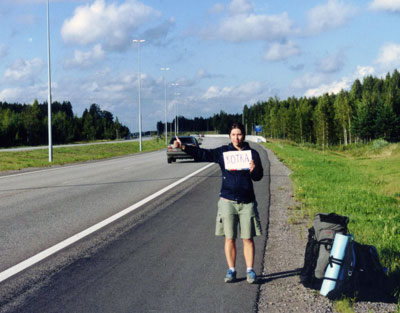
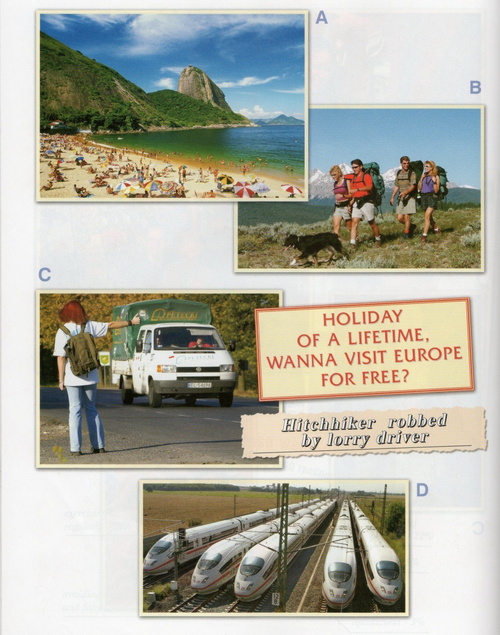
Приложение 3 (фото State Exam стр 53.)
Travelling and tourism.
(Учащиеся работают по фотографиям и отвечают на поставленные вопросы.)
Приложение 4.(Macmillan Exam Skills for Russia, Reading and Writing p.68)
(Match the descriptions of tourist attraction with photographs)
(учащиеся соотносят фотографии c описаниями
достопримечательностей)
A B
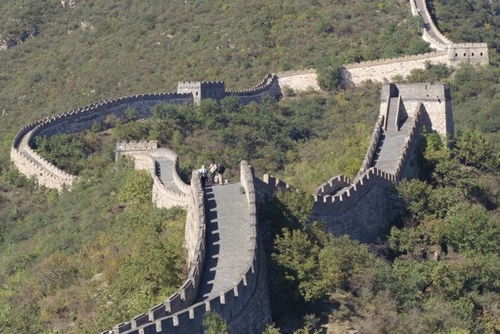
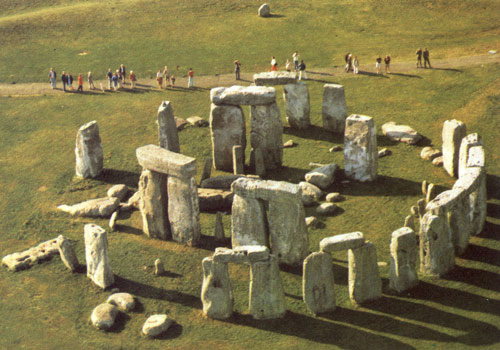
C D
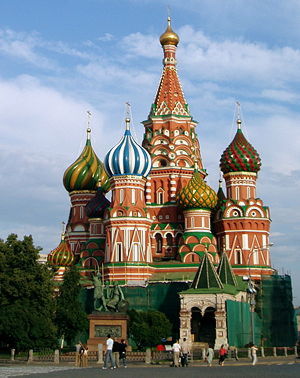
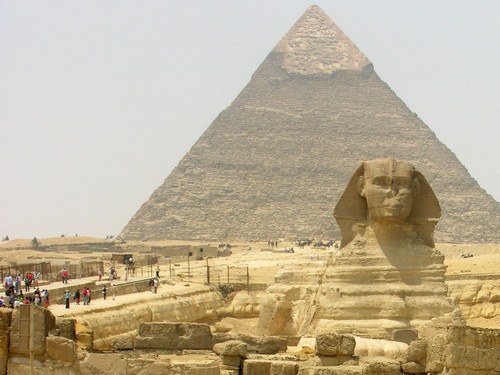
1. It's strange because everything's a lot smaller than you expect from seeing the photographs. There's great feeling of mystery. What did they think, the people who built them? It must be a little scary to be out here at night and they say it gets surprisingly cold. We still don't really know how they made the sides so straight. It's a shame you can't climb to the top because the view must be great.
2. It seems an incredible feat of building, these days. It must have taken them forever to get all those stones into position. Just walking along the top is tiring enough! Knowing it was finished must have given the people a feeling of safety and security.
3. I think the area was used for religious purposes. They say that if you look through from one side to the other on the longest day of the year, you can see the sun in special position. People probably came from miles around to see the stones. We still don't know how they managed to get the huge, heavy ones to balance on the top like that.
1. d Pyramids in Egypt
2. a Chinese Wall
3. b Stonehenge in England
(St. Basil's Cathedral is the extra photograph you don't need to use.)
Приложение 5.
Динамическая пауза. Stretching exercises. Listen and follow the instructions. (Учащиеся выполняют упражнения за диктором)
These are stretching exercises. Head rolling .
First, lean your head to the left. Next, lean your head to the right. Now very slowly, role your head forwards…, sideways…, backwards… and round to the front again.
Do this five times.
Shoulder circles.
First, lift your shoulders up and down. Then, very slowly, circle them back…,
down…,forwards…, and up. Do this seven times.
Приложение 6 ( Аудирование учебник Lazer Pre-FCE Teacher's Book
Macmillan стр. 165 ,Unit 8"Out and About").
Clair: Okay, have we all written our postcards? I'll go to the post office on my way into town and post them later.
Nicki : I've written two. One to grandma and one to Lisa, from school.
Claire: What've you said?
Nicki: Well, I told Grandma about hotel. Do you remember looking at the brochure and her saying how lovely it sounded?
Martin: Yes. She was right. It did look really nice in the brochure, didn't it? I don't think she'd be saying that if she could see it now, would she? It's not finished and the builders are so loud in the morning.
Nicki: I told her about the beach, as well.
Martin:What about it? The beach was okay, wasn't it?
Nicki: The beach was okay, yes, but only if you didn't go swimming. There were so many things in the sea that you could hardly move. Newspapers, tin cans. There was even an old tyre lying on the bottom. It wouldn't be surprised if I got ill after swimming in there.
Claire: So what did you tell Lisa?
Nicki: Everything's gone wrong and I can't wait to get home. The flight was delayed, it's rained every day except one and no- one speaks English. The holiday rep has disappeared and I hate the food.
Claire: Oh, come on. It's not that bad ,is it? You liked seeing the sights, didn't you? What about you, Martin? Who've you written yours to?
Martin: To the next-door neighbours, Richard and Joanne.
Claire: What's it say, then?
Martin: We went to a great restaurant last night. It's just a shame I can't say the same about the food. At least I'll have lost some weight by the time I get home.
Claire: We've seen some wonderful sights and Nicki even went swimming. None of us has got sunburnt. And coming here has given us some great ideas for our holiday next year.
17